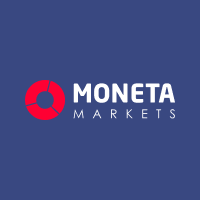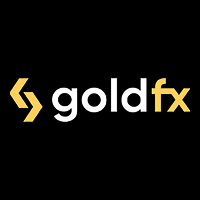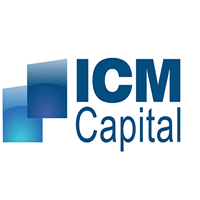Best Forex Broker (ECN Brokers)
The forex market is the world’s largest financial market, with a daily trading volume of approximately $5 trillion. Choosing the right forex broker is essential for maximizing profits and ensuring a smooth trading experience. At Broker True Ratings we have conducted in-depth research to bring you comprehensive insights into the forex market. Our platform provides detailed reviews of the top forex brokers, helping you make informed decisions. Whether you’re a seasoned trader or a beginner, we offer expert guidance to help you select the best forex broker tailored to your needs.
What is Forex Trading?
Forex trading involves the exchange of one currency for another at a specific price agreed upon by buyers and sellers. National currencies from around the world are traded in this decentralized market, which operates as a global electronic network connecting brokerage firms, financial institutions, and central banks. Unlike traditional exchanges, the forex market has no central hub and remains open 24 hours a day.
Like any other business, the goal of forex trading is to generate profits. Currency price movements can be highly volatile, creating opportunities for traders to capitalize on fluctuations. However, increased volatility also comes with greater risk. The best forex brokers provide expert guidance, helping traders maximize profits while managing potential losses effectively.
Choosing a reliable broker is crucial for success in forex trading. Explore our platform for insights on the top forex brokers and make informed trading decisions!

What is a Forex Broker?
A forex broker is a financial services provider that grants traders access to a trading platform where they can buy and sell currency pairs. Whether you’re an institutional investor, a currency speculator, or an individual trader, forex brokers serve as intermediaries in the foreign exchange market, facilitating trades between buyers and sellers. Although individual brokerage firms contribute only a small portion to the overall forex market, their role is crucial in providing liquidity and executing trades efficiently.
How Forex Trading Works with a Broker
Top forex brokers employ advanced trading strategies and tools to enhance the trading experience. A trader initiates a trade by buying a currency pair and closes the trade by selling the same pair. The goal is to capitalize on exchange rate fluctuations to generate profit.
For example, if a trader chooses to trade the EUR/USD pair:
- They buy euros (EUR) using U.S. dollars (USD), opening the trade.
- To close the trade, they sell the pair, converting euros back into U.S. dollars.
- If the exchange rate is higher at the time of selling, the trader makes a profit.
- If the exchange rate has dropped, the trader incurs a loss.
Selecting a reputable forex broker is key to maximizing profitability, as they provide valuable tools, analytics, and market insights to help traders make informed decisions.
Forex Terminology
To navigate the forex market effectively, it’s important to understand key trading concepts, starting with currency pairs.
A currency pair consists of two different currencies: the base currency (the first currency in the pair) and the quote or counter currency (the second currency in the pair). For example, in the EUR/USD pair, buying the pair means purchasing euros and selling U.S. dollars, while selling the pair involves selling euros and buying U.S. dollars.
There are approximately 180 recognized currencies worldwide, categorized into three main types of currency pairs:
Major pairs include the U.S. dollar (USD) and another major currency. These pairs are the most traded in the forex market due to their high liquidity. Examples include EUR/USD, GBP/USD, and USD/JPY. Major pairs are often recommended for beginners due to their stability and lower spreads.
Cross pairs, also known as minor pairs, do not include the U.S. dollar. Instead, they feature major global currencies paired with each other, such as EUR/CAD and NZD/CAD.
Exotic pairs consist of one major currency and one from an emerging or smaller economy. These pairs tend to be highly volatile, with lower liquidity and higher spreads. Examples include USD/ZAR, USD/MXN, and EUR/TRY.
The best forex brokers provide access to all categories of currency pairs, allowing traders to explore different markets. Beginners are generally advised to start with major pairs, as they offer more stability and lower transaction costs. Choosing a reliable broker ensures traders have access to the right tools and market conditions to make informed decisions.
Exchange Rate
The price at which the trader trades one currency for another one is the exchange rate. For example,
Let us take 5 $/€ as the exchange price between the dollar & the Euro. You will buy one Euro spending 5 dollars. Exchange rates are mostly 1. floating & 2. fixed.
Floating exchange rate: The exchange price of currencies is flexible. The rate changes with the market condition (like interest rate, price level, future market expectation, etc.). Top forex brokers trade at a favourable floating price to make the profit.
Fixed exchange rate: In this case, the government fixes the currency price with another currency price. Such an exchange rate doesn’t change.
Bid Price
The bid price is the selling price of the base currency. For example, in the quote USD/AUD 1.5/20, the bid price is 1.5, meaning one U.S. dollar can be sold for 1.5 Australian dollars.
Ask/Offer Price
The ask/offer price is the buying price of the base currency. For example, in the quote USD/AUD 2.75/20, the ask price is 2.75, meaning one U.S. dollar can be bought for 2.75 Australian dollars.
Spread
Spread is the best forex broker‘s ‘no commission’ way of making the profit. The difference between bid & ask(offer) price is the spread. The spread is measured in pip (the smallest unit). Spreads are of two kinds- Fixed & Variable.
Fixed spread: Fixed spread remains the same regardless of market condition. Brokerages that operate the trade as ‘dealing desk’ or market maker offer fixed spread.
Variable spread: This spread changes continuously. The bid and ask price changes too with the variable spread. ‘non-dealing desk’ model operator brokers offer variable spread.
Percentage in Point (Pip)
A percentage in point (pip) represents the fourth decimal place in a currency price quote. For instance, if the price quote for USD/JPY is 0.0625, one U.S. dollar buys approximately 0.0625 Japanese yen.
Margin
Margin is the initial capital required to open a trading position. It allows traders to enter the forex market with a fraction of the total trade value, potentially leading to both profits and losses.
Lot
A lot refers to the size of a trade. The standard lot size is 100,000 units of the base currency in a forex pair. For instance, in the EUR/USD pair, the base currency is the euro. If a trader enters a trade in U.S. dollars, the standard lot would be $100,000.
Leverage
The ratio of the trader’s fund to the broker’s credit size is the trade leverage. One borrows an amount of capital to increase the return. This borrowed capital is leverage.
Leverage is the ratio of a trader’s capital to the borrowed funds provided by the broker. It enables traders to control larger positions with a smaller investment. For example, without leverage, a trader would need $130,000 to trade the GBP/USD pair. With 1:500 leverage, the trader only needs $260 ($130,000 ÷ 500).
Long & Short
The trader can go long or short. When you go long, you buy the first part(currency) of the pair and sell the second part. And, you expect the price will rise. Going short means you sell the first part and buy the second currency. You expect the price will reduce.
How Forex Brokers Make a Profit
Forex brokers generate profits through trading activities, and as an investor, it’s essential to understand how your money contributes to their earnings. The primary ways brokers make money are spreads and commissions.

Some brokers do not charge a direct fee for currency exchanges, but they still ensure profitability by widening the spread—the difference between the bid and ask prices. A portion of this spread becomes the broker’s profit. Given the volatility of the forex market, spreads can fluctuate significantly, especially with variable spreads, which may result in higher trading costs. Traders should always be mindful of how brokers structure their fees. In addition to spreads, some brokers charge a commission on trades. This transaction fee serves as their earnings for facilitating forex trading. Understanding a broker’s fee structure is crucial for maximizing profits and minimizing unnecessary costs.
Advantages of Trading Forex
Trading forex with a reputable broker offers numerous benefits, making it one of the most attractive financial markets.
High Liquidity
Liquidity refers to the ease with which an asset can be converted into cash. The forex market offers high liquidity, allowing traders to execute large transactions quickly without significant price fluctuations.
Low Transaction Costs
In forex trading, the primary cost is the spread—the difference between the bid and ask prices. Some brokers may also charge a commission. However, compared to other financial markets, forex transaction costs are relatively low, making it a cost-effective option for traders.
Use of Leverage
Top forex brokers provide leverage, allowing traders to control larger positions with a smaller capital investment. For instance, with 50:1 leverage, a trader can control a $50,000 trade with just $1,000. While leverage can amplify profits, it also increases risk, requiring careful management.
Profit Opportunities in Rising and Falling Markets
Unlike some financial markets that rely on price appreciation, forex allows traders to profit in both rising and falling markets. Traders can buy a currency pair if they anticipate an increase in value or sell it if they expect a decline. This flexibility enables continuous trading opportunities regardless of market direction.
Access to a Demo Account
Most brokers offer demo accounts, allowing traders to practice trading with virtual money before risking real capital. This is an excellent way for beginners to familiarize themselves with market movements, develop strategies, and gain confidence without financial risk.
A 24/5 Market
The forex market operates 24 hours a day, five days a week, across different time zones. This means traders can choose when to trade, making forex a flexible market that accommodates different schedules. The major trading sessions are divided into three key time zones—Asia, Europe, and North America, allowing traders to participate based on their regional preferences.
With these advantages, forex trading remains a preferred choice for many investors. However, selecting the best forex broker is crucial for maximizing these benefits and ensuring a seamless trading experience.










